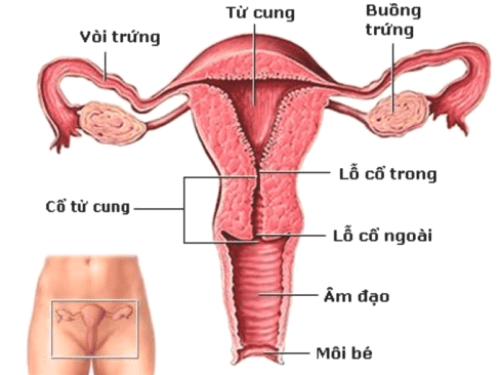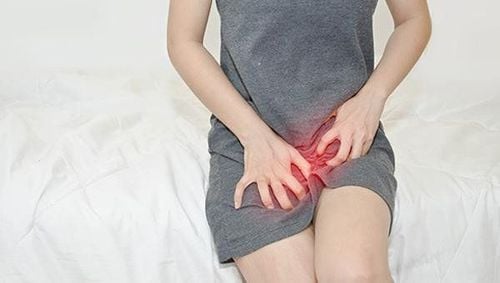What age is too late to have children? This is a question that has been on the minds of many people. At the end of the 20th century, the trend of postponing childbirth to an age when women's fertility began to decline led to an increase in infertility due to aging. This trend and its consequences have stimulated interest in factors that reduce fertility with age in both men and women. The article below provides a suitable answer for you.
In women, the number of eggs decreases with age until menopause. Egg quality also declines, partly due to increased aneuploidy caused by factors such as spindle integrity changes. Advanced paternal age also affects fertility, but abnormalities in sperm chromosomes and semen analysis components are less significant than the frequency of sexual intercourse.
Age can predict as accuracy as other factors in assisted reproductive technology. Fertility decline becomes clinically relevant for women over 30. Assisted reproductive treatments can improve fertility but cannot fully offset the decline caused by delaying conception. Pregnancy in women over 40 involves more severe complications, increased rates of preterm births, congenital disorders, and birth delivery interventions. Below are some helpful insights into determining the ideal age to have children.
1. What age is too late to have children?
Many Hollywood celebrities boast about their health, allowing them to have children after 30 or even 40. However, in reality, the biological clock continues to tick as people get older. William E. Gibbons, Director of the Family Fertility Program at Texas Children’s Pavilion for Women and Director of the Division of Reproductive Endocrinology and Infertility, states: “A 40-year-old woman may have the appearance of a 20-year-old woman, but the truth is her eggs are still 40 years old.”
For older women, the issues are the quantity and quality of eggs. Women are born with all the eggs they will ever have in their whole life. At birth, a female infant may have over one million eggs. However, by puberty, this number drops significantly to about 300,000. Of these, only a few hundred eggs will mature and ovulate during reproductive years. The remaining eggs, about a thousand per month, disappear through a process called follicular atresia. The genetically healthiest eggs mature and ovulate first.
Angela Chaudhari, MD, an obstetrician-gynecologist at Northwestern Memorial Hospital in Chicago, shares that as women age, eggs are more likely to mutate due to aging. For older women, these factors affect pregnancy success and increase the likelihood of miscarriage. Older mothers are also more likely to give birth to children with chromosomal abnormalities, such as Down syndrome.
In women, the reproductive period officially begins with the first menstrual cycle and ends at menopause. Dr. Gibbons shares that biologically, the best time for women to conceive is between the ages of 18 and 30. By age 32, the biological clock starts to sound an alarm as doctors observe a decline in egg quality, reducing fertility. Each year after 32, a woman’s chances of conceiving diminish. Below are fertility milestones for women in their late 30s and early 40s, according to Dr. Gibbons:
- At 35: 1 in 5 eggs in the ovaries are genetically normal.
- At 40: 1 in 9 eggs is normal.
- At 45: The number drops to 1 in 15%
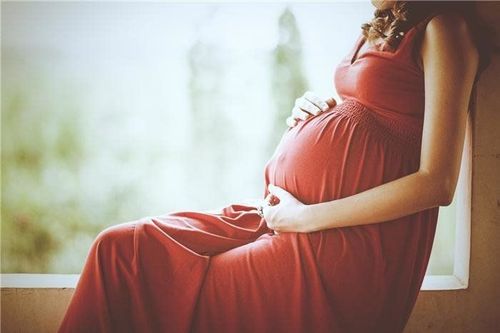
In other words, women’s fertility tends to decline as the number of eggs decreases at any age. A girl entering puberty has between 300,000 and 500,000 eggs. This number drops to 25,000 by age 37 and to about 1,000 or fewer by age 51.
Regarding delayed conception and infertility treatment, Dr. Chaudhari said: “I think many women wait longer to conceive due to factors such as marrying later or focusing on their careers. Assisted reproductive technologies can help older women conceive, but success rates are not always high”. Older women may not realize their biological clock is working against them. Dr. Gibbons stated: “Some women over 40 have unrealistic expectations. They believe infertility treatments can solve all their problems.” Recent studies from Yale University researchers propose this sentiment.
They found that more women aged 43 and older are seeking fertility clinics due to the misconception that age does not affect fertility. According to data from the U.S. Centers for Disease Control and Prevention (CDC), assisted reproductive techniques such as in vitro fertilization (IVF) result in live births in fewer than 7% of cases for women aged 43 who use their eggs. However, using donor eggs significantly increases the chances of conception.
Dr. Gibbons said: “A 45-year-old woman has the same chance of conceiving as a 25-year-old if the egg is 25 years old. However, having children at an older age increases the risk of gestational diabetes, high blood pressure, and preeclampsia”. She added: “First pregnancies in older women have a higher cesarean section rate compared to younger women”. If a woman is of reproductive age but not ready for motherhood, she has several options. The first is egg freezing for later use. This process, known as oocyte cryopreservation, is expensive, costing up to $25,000. Moreover, eggs may not survive in the freezing, thawing, and fertilization process. While still relatively new, this technique has passed clinical trials by the American Society for Reproductive Medicine and is expected to become a trend. However, time is critical. “The earlier women use this method, the higher the success rate”, explained Dr. Gibbons.
Another option is embryo freezing, which is also costly but has higher pregnancy rates than egg freezing. “Of course, this method requires sperm from a donor or partner. Therefore, some younger women may not consider it”, Dr. Gibbons explained.
The journey to motherhood for Robin Gorman Newman of Great Neck, New York, at age 51, came with challenges. Newman, founder of MotherhoodLater.com, and her husband struggled with fertility issues as they decided to marry when she was 36. Newman shared that both had fertility problems, but her age likely contributed to the issue. The couple decided to try IVF but were unsuccessful. Newman said: “I felt truly exhausted and uncomfortable throughout the process”. Years later, Newman and her husband finally became proud adoptive parents of Seth, now 9 years old. She said that as she aged, her experiences brought life lessons that she applies to motherhood. “I try not to sweat the small things. I trust my mother’s instincts. I believe age is an asset, not a drawback”, she said. Newman also added that she has no regrets about not trying to have children earlier. “I have always believed in destiny - it brings you the child you’re meant to have.”
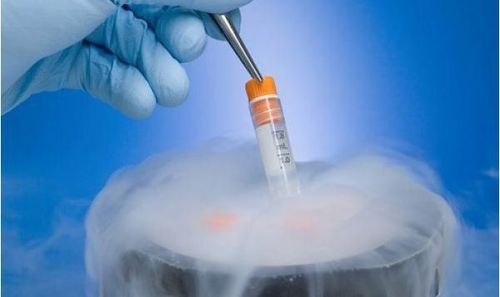
2. What is an ideal age to have a child?
According to ACOG, even for women with many eggs in their 20s and early 30s, the chance of conceiving in one month is only 25%. By age 40, only 1 in 10 women can conceive in each cycle. For women undergoing assisted reproductive technology (ART), success rates decline with age, as shown in a CDC study in 2015.
Menopause, defined as the cessation of menstrual cycles (for a year or more), usually occurs in women in their late 40s to early 50s, with the average age being 51. Therefore, women are able to conceive naturally at the age of 50. Before menstruation stops entirely, there is a transitional period called perimenopause, where cycles become longer and less regular. In general, women enter perimenopause in their mid-40s, but some may experience it as early as their mid-30s. During this time, ovulation still occurs, allowing for conception, though it is more challenging.
It is heard stories about older mothers delivering full-term pregnancies. For example, a 74-year-old woman in India gave birth to twin girls in 2019. The key in these cases is that the mothers relied on hormone treatments and IVF. These are rare exceptions, not the typical cases. Most women over 45 cannot conceive without the assistance of IVF and other ART procedures. The American Society for Reproductive Medicine (ASRM) states that women of any age can conceive naturally or with medical assistance if they have a “normal uterus,” even if they lack ovaries or ovarian function.
There are many women who conceive after 35, but this comes with certain risks for both mother and child. These risks tend to correlate with maternal age. As women come close to menopause, they may take longer to conceive because their bodies have a finite number of eggs. Over time, the egg number decreases. Additionally, eggs of lower quality are harder to fertilize or implant successfully.
The decline in egg quality also increases miscarriage risk, which can result from preexisting conditions such as high blood pressure or diabetes. Stillbirth is another risk. Thus, prenatal visits and consultation are essential to address risks such as chromosomal abnormalities or congenital disorders. Older women are more likely to have children with chromosomal issues. For instance, the risk of having a child with Down syndrome is 1 in 1,480 for women aged 20. This risk rises to 1 in 85 for women aged 40.
Older mothers are also at higher risk for conditions including:
- Gestational diabetes: This condition can cause the baby to grow larger than average, leading to mother’s injuries when giving birth. It also increases the mother’s blood pressure, leading to premature birth and other complications for the baby.
- High blood pressure: Pregnancy-related hypertension or preeclampsia is more common in women over 40. The birth weight of a baby is low. It is potentially leading to preterm birth and a baby’s low birth weight.
- Cesarean section: Due to pregnancy complications, the risk of cesarean delivery compared to vaginal delivery increases. Cesarean rates for women in their 20, 35, and 40 are 26%, 40%, and 48%, respectively.
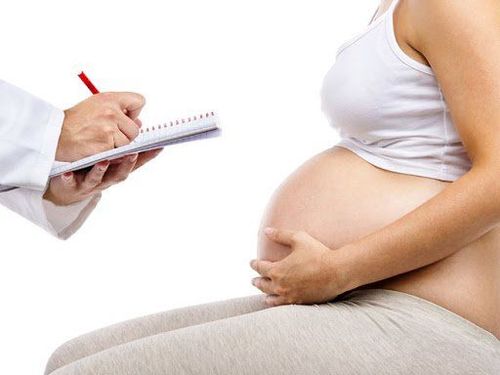
Thus, every woman should choose an appropriate age to have children, with the most suitable age being between 20 and 30. As age increases, women deal with greater risks before, during, and after pregnancy, such as difficulties in conceiving, requiring medical intervention to conceive, or being more prone to pregnancy-related conditions and fetal abnormalities.
Reference articles: healthline.com, everydayhealth.com, acog.org
To arrange an appointment, please call HOTLINE or make your reservation directly HERE. You may also download the MyVinmec app to schedule appointments faster and manage your reservations more conveniently.



